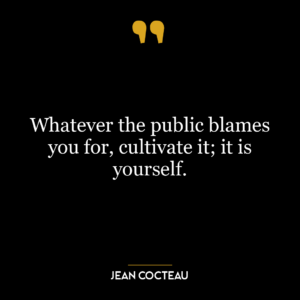This quote suggests that when we point fingers at others, it might be because we’re trying to divert attention away from our own flaws or shortcomings. It implies a human tendency to project, a psychological defense mechanism where we deny our own traits and instead see them in others. The truth we’re avoiding could be something we’re uncomfortable with or something we’re not ready to accept about ourselves.
In essence, it is easier to blame others than to look inward and confront our own issues. This is because self-reflection and self-improvement require courage, effort, and emotional labor. It’s often more convenient to criticize others than to take responsibility for our own actions and emotions.
Applying this idea in today’s world, we can see this behavior everywhere, from personal relationships to professional environments, even to politics. The internet and social media have made it even easier to criticize and blame others without having to face our own issues.
In terms of personal development, understanding this concept can be transformative. It helps us to shift our focus from others to ourselves, encouraging introspection and personal growth. When we feel the urge to blame or criticize someone else, we can instead stop and ask ourselves what this reaction is telling us about our own state of mind or personal issues. This can lead to a greater understanding of ourselves, more effective communication, and healthier relationships.
In conclusion, this quote is a reminder that blaming and criticizing others can often be a sign of our own unresolved issues. By recognizing this, we can turn these situations into opportunities for personal growth and self-improvement.







